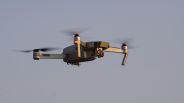The technological landscape is ever-evolving, and with it, the military and aerospace sectors have transitioned into a new era of operations. Amidst these advancements, cloud defense software emerges as a pivotal element, enhancing both security and operational efficiency. In a world where cyber threats grow more sophisticated by the day, why does this software become crucial?
Exploring the Evolution of Military and Aerospace Technology
For decades, the aerospace and defense industries have harnessed cutting-edge technology to stay ahead. The modern era demands complex infrastructures that support connectivity, data sharing, and instantaneous communication—from advanced aircraft to satellite systems.
Deciphering Cloud Defense Software
Designed to shield sensitive information within cloud environments, cloud defense software is a multifaceted strategy integrating encryption, threat detection, and continuous monitoring. This is particularly vital in military and aerospace realms where safeguarding classified data is paramount—ensuring protection against both external and internal threats.
Cloud Defense: A Shield for National Security
National Security and Cloud Defense: A Symbiotic Relationship
One of the foremost functions of cloud defense in military contexts is the safeguarding of national security. Vital military data—ranging from intelligence reports to strategic documents and real-time operational data—are prime targets for cyber adversaries. A breach could potentially unravel national defense mechanisms, leading to dire consequences. Cloud defense is instrumental in mitigating these risks, fortifying the military's data storage and communication frameworks against potential cyber threats.
The Imperative of Real-Time Threat Detection and Response
In the dynamic arena of military and aerospace operations, the capability to preemptively identify and counteract cyber threats is crucial. Contemporary cloud defense mechanisms employ artificial intelligence and machine learning to detect anomalies and instigate immediate countermeasures, effectively neutralizing threats before they can escalate.
Driving Operational Efficiency with Cloud Defense
Seamless Communication and Data Sharing
A significant advantage of cloud technology lies in its facilitation of smooth communication and data sharing across various departments and global locations. For military operations, this translates to instantaneous access to critical data for units worldwide. Cloud defense ensures this information is secure during transmission, enabling real-time, risk-free collaboration.
Adapting with Scalability and Flexibility
Modern military and aerospace operations demand the flexibility to scale operations based on mission requirements rapidly. Cloud defense offers the necessary scalability and adaptability to meet these changing demands effectively.
Safeguarding the Future: Cloud Defense in Aerospace
Ensuring the Security of Space Assets
In aerospace operations, protecting space assets like satellites and ground systems is critical. These assets, pivotal for collecting and transmitting a wide array of data from weather patterns to surveillance insights, rely on robust cloud defense to prevent unauthorized access and ensure data integrity.
Maintaining Data Integrity in Space Exploration
As the frontier of space exploration expands, securing data transmission between space stations, satellites, and earth-bound systems becomes increasingly critical. Cloud defense plays a crucial role in ensuring data integrity during these transmissions, a foundational aspect of successful space missions and the reliability of global positioning systems and other vital aerospace functions.
The Indispensable Role of Cloud Defense in Modern Military and Aerospace Operations
Cloud defense software is not just beneficial but essential for modern military and aerospace operations. It provides the necessary security to protect sensitive data, boosts operational efficiency, and ensures the safety of crucial assets. As technology advances, the threats these industries face will evolve, necessitating ongoing investments in robust cloud defense solutions. By doing so, military and aerospace entities can stay ahead of potential threats and maintain high levels of efficiency and operational integrity.
ⓒ 2025 TECHTIMES.com All rights reserved. Do not reproduce without permission.






